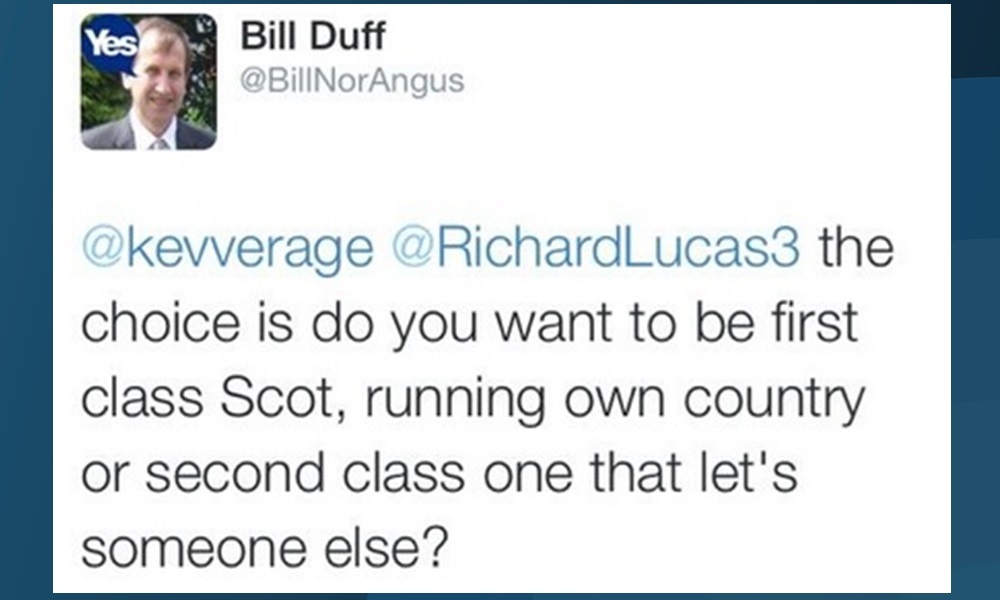An Angus councillor has come under fire after he described people who vote against Scottish independence as “second class Scots”.
SNP councillor Bill Duff made the remarks in an exchange on Twitter, which has spiralled into a debate on acceptable standards for politicians.
In conversation with Edinburgh political blogger Kevin Hague @kevverage, Mr Duff said anyone voting against Scottish independence on September 18 is a “second class Scot”.
The tweet now appears to have been deleted.
His comments ruffled feathers among pro-Union elected members and it is understood moves are under way to refer the matter to the Standards Commission.
Mr Duff wrote: “The choice is do you want to be first class Scot, running your own country or a second class one that lets someone else?”
Mr Hague stated: “So you’re calling me a second class Scot?” The response was: “If you want someone else to run your company (country)? Yes.”
Arbroath councillor David Fairweather called for a retraction of the comment, and said it is “worrying” if Mr Duff’s views are held in common with SNP colleagues.
He added that he would consider reporting the matter to the Standards Commission if no retraction is forthcoming.
He said: “Comments like that will endear no one to the Nationalist cause, will cause deep offence to all Scots whether they are voting yes or no, and to be perfectly honest that kind of drivel is best consigned to where it belongs, the bin, as it has no place in the referendum debate.”
Mr Duff could not be contacted by The Courier despite repeated attempts, but fellow Montrose councillor and Liberal Democrat member David May said he “should apologise” over the matter.
“It is very disappointing to read this tweet that all ‘no’ voters are being called second-class citizens.
“The tweeter should apologise for this comment to all no voters.
“As Scots we should be able to disagree with each other and our differences should be conducted in a much more civilised manner.”
Independent Montrose councillor Mark Salmond said politicians “should think before they speak” on social media.
“We shouldn’t label people based on their political preferences,” he said. “And we can’t differentiate citizenship based on what can be deeply-held personal beliefs.
“If you’re in the public domain you have to be very careful in what you say this is just silly.”
A spokesman for the Better Together Angus group said the outburst “goes against the spirit of the whole campaign”.
Derek Wann added: “It is an absolute disgrace that Mr Duff has said this, especially on social media and surely in this democratic country we all have the right to our opinions without an elected representative calling us second-class Scots.
“I would ask that he withdraws his remarks immediately.”
